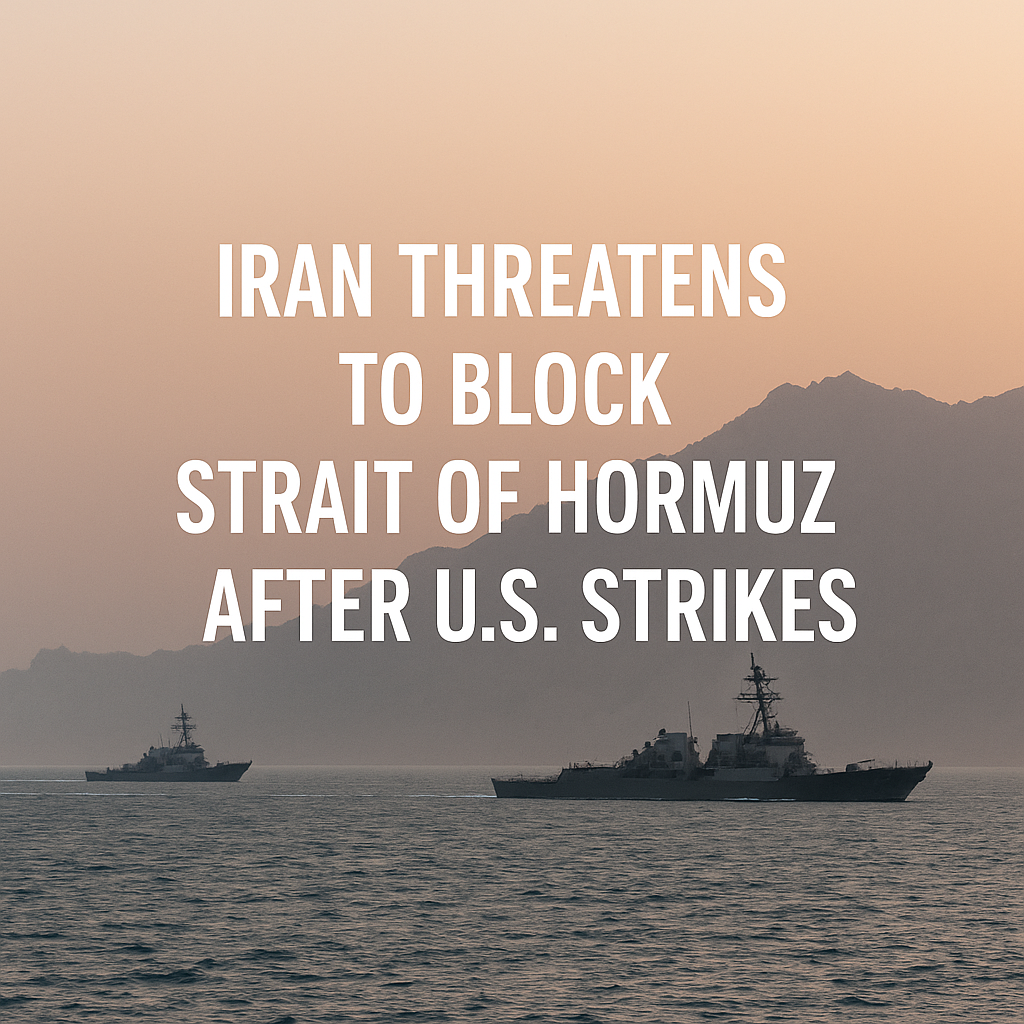Iran Threatens to Block Strait of Hormuz After U.S. Strikes – Why This Oil Chokepoint Matters

Strait of Hormuz blockade
June 22, 2025 | International Desk
Tensions have escalated in the Persian Gulf as Iran has signaled it may block the Strait of Hormuz in response to the latest U.S. airstrikes on Iranian-backed militias in Iraq and Syria. This alarming development could have serious consequences for global oil supply and geopolitical stability.
What Happened?
On Saturday, U.S. forces conducted targeted airstrikes against Iranian-backed militants following repeated drone and rocket attacks on American troops in the region. In response, senior Iranian officials issued a strong warning, stating that “all options, including closing the Strait of Hormuz, are on the table.”
Why the Strait of Hormuz Is So Important
The Strait of Hormuz is one of the most critical maritime chokepoints in the world. Located between Iran and Oman, it connects the Persian Gulf to the Arabian Sea.
- Nearly 20% of global oil (about 17 million barrels per day) passes through this narrow waterway.
- It is the main route for oil exports from top producers like Saudi Arabia, Iran, Iraq, the UAE, and Kuwait.
- Any disruption could cause global oil prices to spike and impact supply chains worldwide.
Global Reactions
- The U.S. Navy’s Fifth Fleet, based in Bahrain, has increased surveillance and naval presence in the area.
- The UN and European Union have urged for de-escalation and warned that blocking the strait would violate international law.
- Oil markets reacted swiftly, with Brent crude rising 4% on Monday amid fears of supply disruption.
What’s Next?
Experts warn that if Iran follows through on its threat, it could trigger a wider regional conflict, drawing in the U.S., Gulf countries, and possibly Israel. Diplomatic backchannels are reportedly active, but the situation remains volatile.
Conclusion
The Strait of Hormuz has always been a flashpoint in Middle Eastern geopolitics. With Iran threatening to block this vital oil route after the U.S. strikes, the world watches anxiously. The coming days will be crucial in determining whether tensions will cool or explode into open
I
